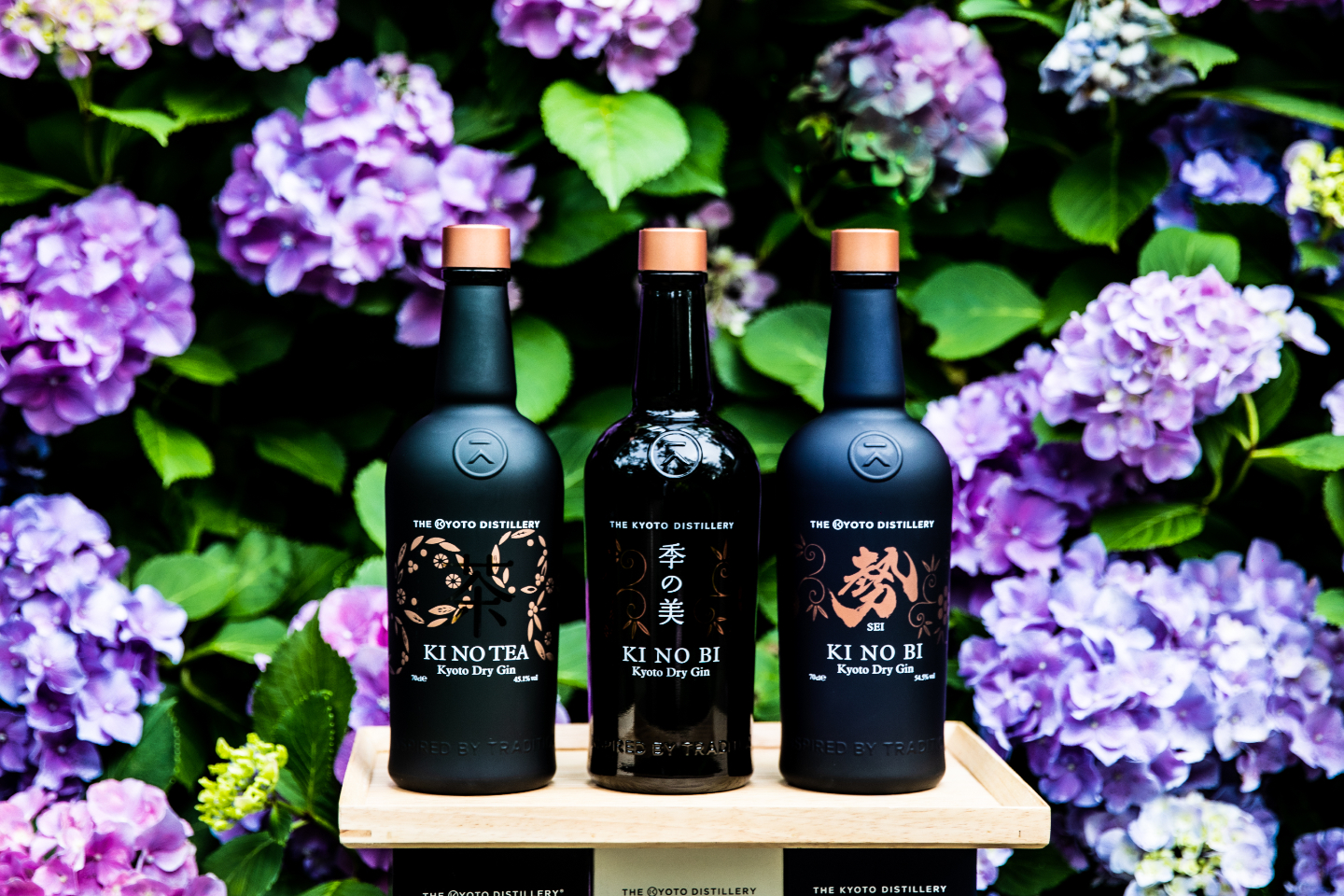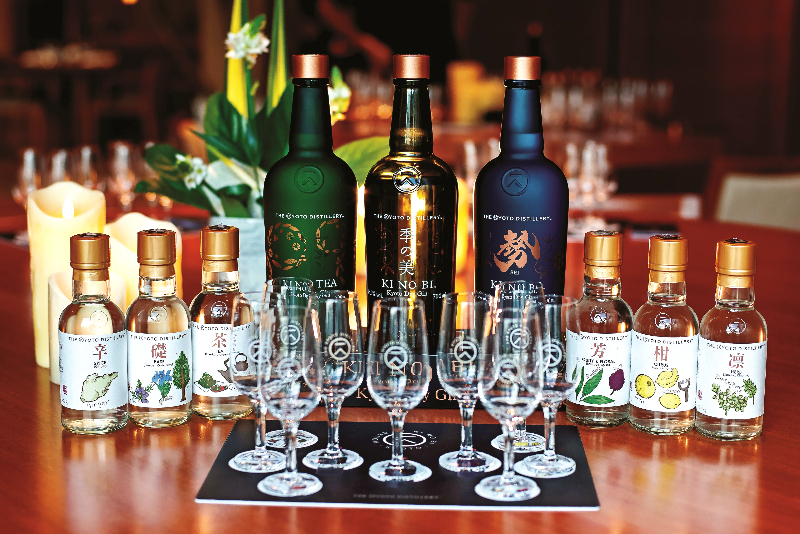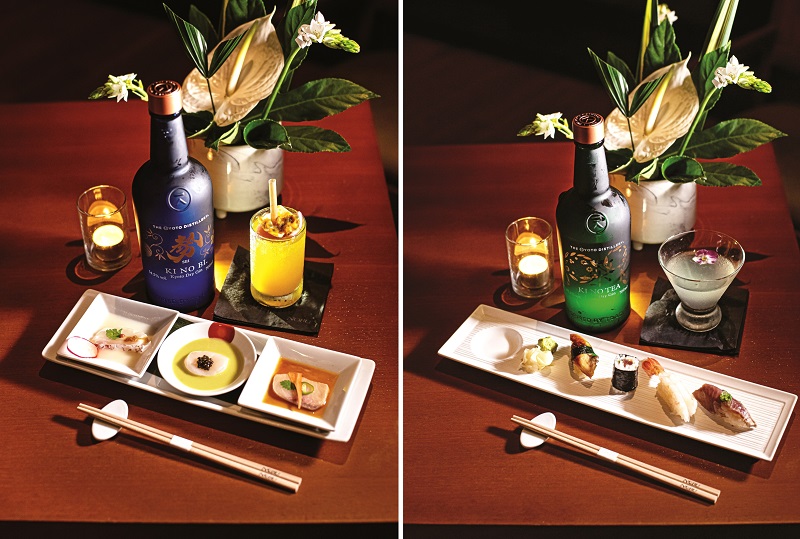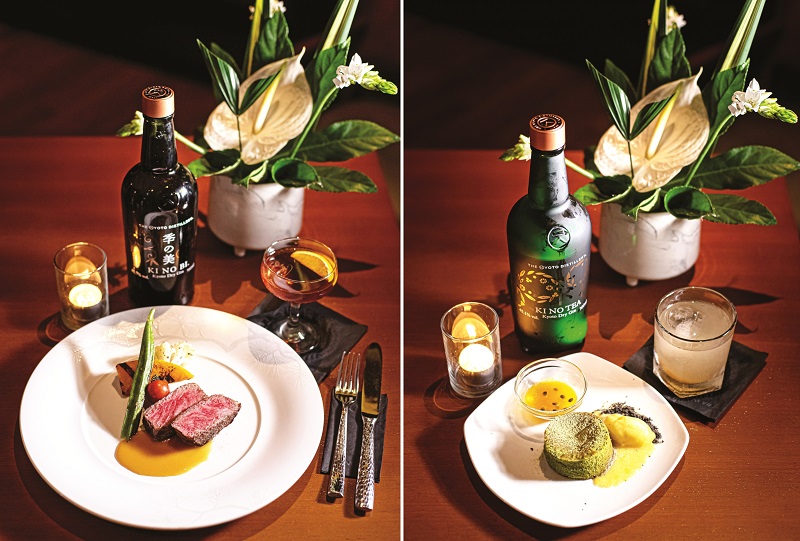
Six elements are masterfully blended to create a balanced, artisanal gin (All photos: The Kyoto Distillery)
Just like whisky, gin has gone from being a spirit mainly produced by one or two countries (in this case Spain and the UK) to being a worldwide business. While the UK still produces the most gin, the US and Germany are not far behind. Even in Japan, gin distilleries have become increasingly popular. According to The Wall Street Journal, there are 41 sites licensed by Japan’s National Tax Agency to make gin.
The Kyoto Distillery was established on Dec 1, 2014, and went on to create the first craft gin made in that city. Ki No Bi (Japanese for the beauty of the seasons) is a high-quality gin created with premium local ingredients while still honouring tradition. This brand was named Contemporary Gin of the Year by International Wine & Spirits Competition in 2018, International Gin Distiller of the Year in 2018, as well as Craft Producer of the Year by Icons of Gin 2019.
To celebrate Ki No Bi’s fifth anniversary, the brand held a masterclass exploring the spirit’s six elements, followed by a dinner specially curated by chef Philip Leong of Nobu Kuala Lumpur on Nov 30.
dsc_2296.jpg

The evening began with a little insight into the making of this gin. A selection of 11 botanicals sourced locally from Kyoto are separated into six categories, known as elements. Each element is macerated in rice spirit — a neutral spirit which gives the gin a smoother mouthfeel — and then distilled. In a process known as konwa, these elements are then blended with Fushimi water, which is taken from the region’s oldest saké brewery, Tsuki no Katsura. This water is known for its purity, softness and flavour. Finally, the elements are masterfully blended to create a balanced, artisanal gin.
For the masterclass, we were invited to taste the six elements individually before sampling the Ki No Bi gin. We began with the base, which is a mix of juniper (a classic gin ingredient), orris and hinoki. This was followed by citrus, made up of yuzu and lemon, which was so delicious that most of the guests at our table would happily drink this spirit for the rest of the evening. The spice spirit was a gingery concoction with a layered flavour. It was another favourite of the night. The fruity and floral element had quite an earthy and grassy nose as it was a combination of red shiso and bamboo. The herbal spirit brought together sansho and kinome, making it aromatic and reminiscent of a complex laksa-like flavour. Finally, the tea element, flavoured with gyokuro green tea, was smoky and reminded me of hojicha roasted green tea.
After exploring the elements, we got to the highlight of the night: the Ki No Bi gin. Bottled at 45.7% abv, this dry gin has quite a citrusy nose, with a juniper forward flavour. It also has a distinct ginger finish. The spirit comes in a unique bottle that features a screen print label, made in collaboration with Kyoto-based karakami atelier Kira Kracho.
kinobi_x_nobukl.jpg

Guests were also welcome to try a few more gins by The Kyoto Distillery. The Ki No Bi Sei — sei means power — is so called as it is bottled at the traditional Royal Navy strength of 54.5% abv. With a grassy aroma, it is surprisingly balanced for its high strength, with a ginger forward flavour. Tea lovers would be enthralled with the Ki No Tea gin, created in collaboration with Hori-Shichimeien, a tea-grower and blender based in the Uji region of Kyoto city. Hori-Shichimeien’s heritage is quite impressive, as it was founded in the Meiji era in 1879. With the added blend of tencha and gyokuro tea, Ki No Tea can be sipped neat. Smoky with an earthy taste, this gin is slightly sweet with quite a long finish.
In honour of its fifth anniversary, the gin distillery has launched the Ki No Bi Go bottle — go is Japanese for five. This special-edition gin is another blend that’s easy to drink neat. Ideal for those who enjoy the citrus element, as it has a yuzu forward taste, this spirit has a fruity nose and each sip reveals one of the signature Ki No Bi elements which blend into a refined flavour.
After a quick break, dinner was served. The omakase menu by chef Philip paired courses with specially created Ki No Bi cocktails. The moriawase included a fresh yellowtail sashimi with jalapeno, a light and slightly spicy scallop jalapeno, and a citrus forward Madai Tiradito. This was paired with a Ki No Bi Sei Passion Fizz, a refreshing and sweet cocktail that offset the acidity of the dish.
kinobi_x_nobukl_2.jpg

The chef’s sushi selection was certainly up to Nobu’s usual high standards. It included skipjack tuna, shrimp, spicy tuna roll and unagi. The fresh and light sushi was paired with a sweet Ki No Tea Lemongrass Lychee Martini, which surprisingly had a chocolatey flavour that went well with the umami flavours of the dish without overpowering it.
The next dish was lobster salad with a spicy lemon dressing that was both refreshing and light, followed by a threadfin karaage with shiso salsa, which was citrusy and had great bite as it was deep-fried. The grilled Japanese wagyu beef with yuzu miso was perhaps the most sumptuous dish of the evening — the fat of the meat was cut perfectly by the tangy yuzu miso. Served with this dish was the Ki No Bi Sakura Negroni, which Campari fans would adore. Dessert was a matcha fondant with a refreshing passion fruit ice cream, served with the Ki No Tea Matcha Macho cocktail, which was tea forward and had a slight umami flavour.
The gin brand has also partnered The Iron Fairies KL for specially curated cocktails until Jan 31, as well as offer bottle promotions with complimentary snacks with Hana Dining Sake Bar, and Ki No Bi gin food pairings with Uni Omakase, Hoshun and Kogetsu at The Saujana Hotel.
This article first appeared on Dec 20, 2021 in The Edge Malaysia.


